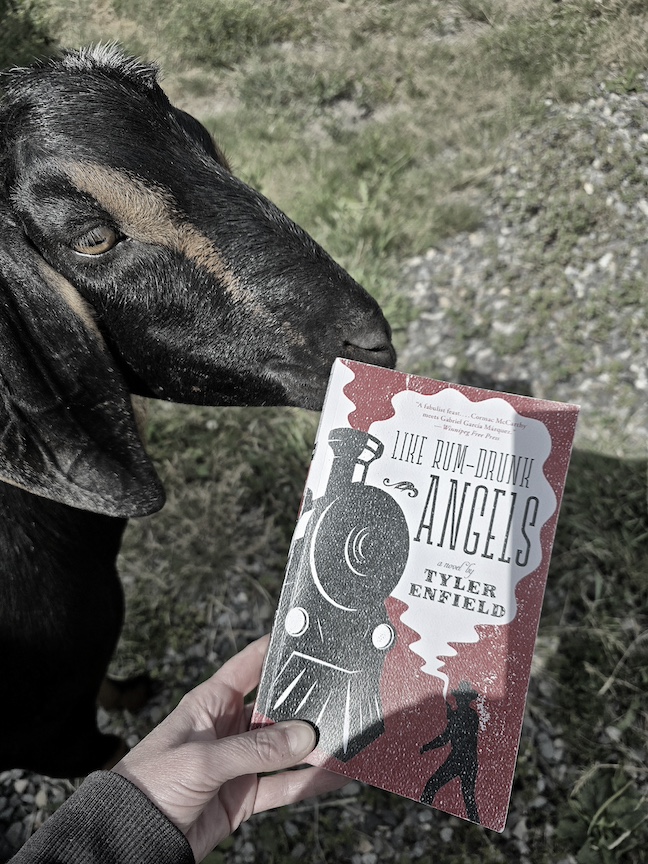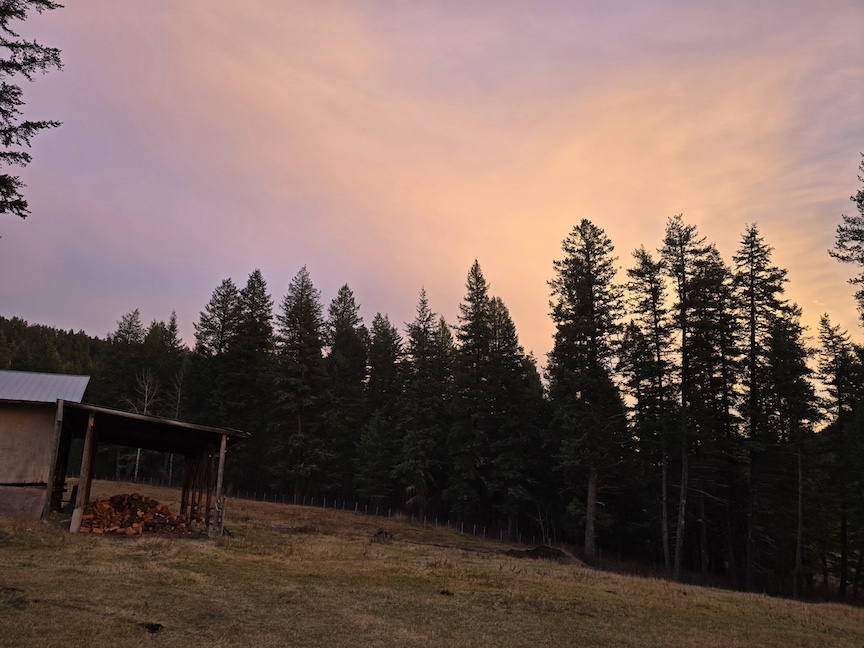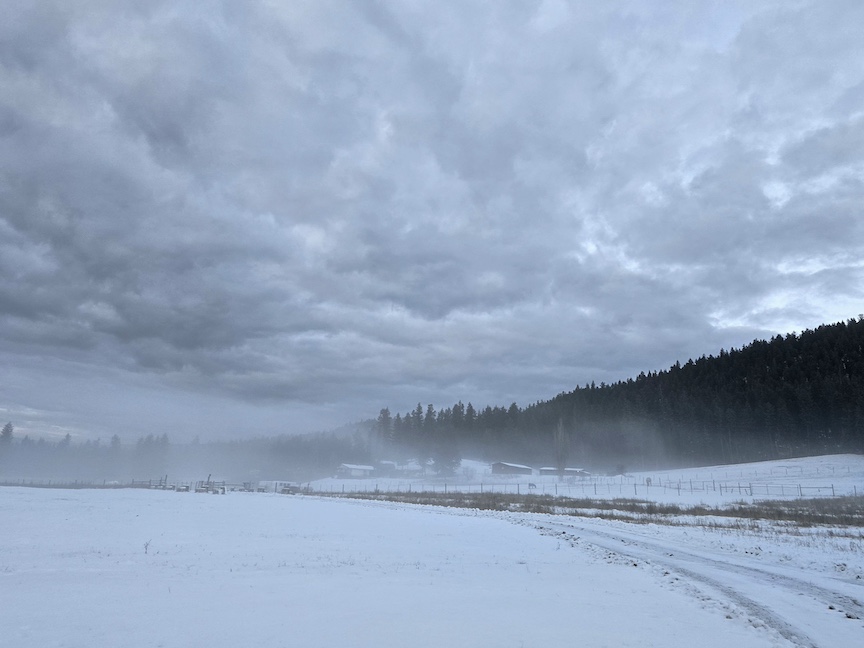Author: Tyler Enfield
Published: 2020
Mood: If you’ve absolutely had it all the bad things happening in the world and want to escape into a whimsical Western but you also don’t want anything too implausible.
It took me an embarrassingly long time to finish Like Rum-Drunk Angels, but not for the reason you’d expect. This fantastical Canadian Western is just so hypnotic that after reading a few lines each night, I was swept off to dreamland.
That sounds like a bunch of hyperbole, but I swear it’s the truth.
Like Rum-Drunk Angels radiates the extraordinary vibes of O’ Brother, Where Art Thou?, The Ballad of Buster Scruggs, and in an obvious way that I’ll explain in a minute, Aladdin. Yet it’s somehow also got a Leone-style narrative habit of lingering on the most mundane details of places and people.
It’s a charming and frequently absurd tale with vibrant characters, unbelievable events, and an epic hero’s quest, but it’s not really a fantasy Western. At no point does anything overtly magical happen… or does it?

Like Rum-Drunk Angels begins at the near-end, then backs up a year to where the adventures began. From there it gallops forward, flashes all the way back, foretells the future, semi-concludes, makes one final leap several decades ahead, and then once again returns to the beginning.
Don’t worry, it all makes sense when you read it. Author Tyler Enfield unfurls the story through short, easily digestible segments with clear titles that set the tone, time, and location.
The protagonist, Francis, is a 14-year-old boy who is in love with the governor’s daughter. But he’s a nobody, so he sets out to make his fortune with the ultimate goal of winning her hand in marriage – the fact that he forgot to learn her name doesn’t hinder him in the slightest.
Francis joins up with grizzled outlaw Bob Temple, who has a treasure map. When Francis crawls into a partially collapsed mine to seek the treasure, he finds no vault of coins and jewels, only a few ancient weapons and what seems to be a magic oil lamp. The scene ends with just a hint that Francis has seen something, so it’s up to the reader’s imagination what actually happens when Francis touches that lamp.
The lack of tangible treasure propels Bob and Francis to form a gang (with Francis’s brother Sam and their friend Ned), and start robbing trains. Their ultimate goal, following the directions of some prophetic Amish triplets, is to rob the Manhattan Company Bank in California.
But as with the oil lamp, nothing is what it seems.
![]()
My favourite aspect of Like Rum-Drunk Angels is the poetic language. I’m used to dryer Westerns that only spare expressive details for the landscapes, so this was a breath of fresh air.
It’s a great balance of action, dialogue, and these colourful descriptions that weave a spell of vivid imagery in your head. You can open the book to any page and find a bit of philosophy, a swirl of the surreal, or something ordinary described in such a captivating way that it makes you feel bad for never taking time to notice the world around you.
Unexpected elements like a deranged carnival, an accidental peyote trip, and excerpts from The Beatles’ I Am the Walrus and Steppenwolf’s Magic Carpet Ride being sung in saloons, all lend a heady, trippy quality to their scenes.
The surrealism is fun, because you’re never 100% sure if things are happening exactly as-is, if they’re exaggerated, if they’re outright made-up, or if they are simply memories coloured by Francis’s teenage optimism and Bob’s nostalgia.
![]()
Normally I would loathe a character like Francis, because he has no weaknesses. Flaws make characters relatable, so Francis is wholly unrelatable to me – and probably to most other readers. He’s handsome, charismatic, doesn’t feel fear, and he’s naturally good at everything he tries. I read a few reviews that said he seemed too unaffected by bad things happening around him, and that he didn’t learn anything in the end.
You have to keep in mind that this is a 14-year-old boy. His feelings are all big, and often brief, and he’s at once both single-minded and easily distracted. Francis believes with his whole hearts that he’s met the love of his life, that he’ll get a fortune just because that’s what he wants, and that everything will work out. When things go wrong, he’s surprised but he keeps going because he only has this one goal in life. He only knows one path, and that’s forward. While everyone else in the settings is bogged down by life, Francis sees endless opportunity.
There are times when it does come across a bit sociopathic, like when he experiences the deaths of loved ones and doesn’t seem to have a strong reaction. But I got the impression of someone who compartmentalizes because there are practical matters at hand, and emotions can’t get in the way. I know several people like that. Francis does carry those characters in his heart, as evidenced when they are referenced later.
Sure, I would have liked it better if the ending was a surprise, like if he learned that you don’t always get what you want and had to set a new goal. But at the same time, he did work his ass off the entire novel, and hard work CAN be rewarded.
There is a short, dark storyline about a young girl who, it’s implied, got pregnant by her father, and Francis takes her in. Other than a doctor’s brief comments about the atrocity, which Francis doesn’t understand, this subject doesn’t go any deeper. It’s at odds with the rest of the book because there’s nothing else even close to that serious in the pages, and it feels like the pregnancy aspect just wasn’t necessary. It would be interesting to know why the author made that choice.
Overall, Like Rum-Drunk Angels is entertaining. It has a good pace, unique situations, and it’s often quite funny. If you’ve ever wondered what would happen if Aladdin was dropped into the Old West as a teenage train robber, this could be right up your alley.


